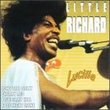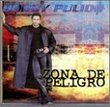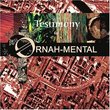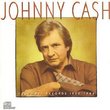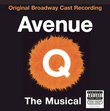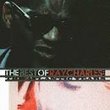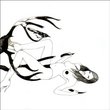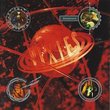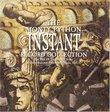| All Artists: Bernard Herrmann Title: Bernard Herrmann at Fox Vol. 3: Anna and the King of Siam Members Wishing: 2 Total Copies: 0 Label: Varese Sarabande Original Release Date: 2/29/2000 Release Date: 2/29/2000 Album Type: Soundtrack Genres: Pop, Soundtracks Style: Number of Discs: 1 SwapaCD Credits: 1 UPC: 030206609127 |
Search - Bernard Herrmann :: Bernard Herrmann at Fox Vol. 3: Anna and the King of Siam
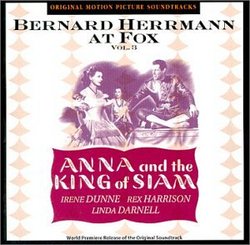 | Bernard Herrmann Bernard Herrmann at Fox Vol. 3: Anna and the King of Siam Genres: Pop, Soundtracks
|
Larger Image |
CD DetailsSimilar CDs
Similarly Requested CDs
|
CD ReviewsHerrmann's "Anna and the King of Siam" G M. Stathis | cedar city, utah USA | 03/21/2000 (5 out of 5 stars) "Bernard Herrmann is best known today for his scores to a series of Alfred Hitchcock thrillers,("Psycho" and "North By Northwest" to name only two), but much of his work was done for Twentieth Century Fox and music director Alfred Newman in the waning days of the Hollywood studio system. At Fox he domonstrated a versatility that is still legend. He scored romance ("The Ghost and Mrs. Muir"), Gothic romance ("Jane Eyre"), romantic adventure ("Beneath the Twelve Mile Reef"), epics ("The Egyptian" with Newman), a western ("Garden of Evil"), and science fiction and fantasy ("The Day the Earth Stood Still" and "Journey to the Center of the Earth"). Of course, all of that followed his storied work with Orson Welles ("Citizen Kane" and "The Magnificent Ambersons"). Herrmann proved a fair hand at scores for films in exotic locales, as well, Africa ("White Witch Doctor" and "The Snows of Kilimanjaro"), the Middle East of the Arabian Nights ("The Seventh Voyage of Sinbad"), India under the Raj ("King of the Khyber Rifles"), and Southeast Asia ("Anna and the King of Siam"). The Fox production of "Anna and the King of Siam" (1946) would later be overshadowed by the musical version of the same story, "The King and I," which is unfortunate. The earlier film was a splendid and thoughtful epic with a fine score by Bernard Herrmann. The recent recording of "Anna and the King of Siam" is a "world premiere release of the original soundtrack," and a welcome addition to Varese Sarabande's series "Bernard Herrmann at Fox," indeed, it is the best so far. This is a rare case where the original soundtrack not only survived, but was preserved in stereo. And it is a marvel, from the epic main theme to more sentimental phrases that underscore the very personal relationship between Anna and the King. The poignant passages that underscore the King's death are particularly moving. Throughout are the unorthodox and often dramatic orchestrations that made Herrmann famous. Note especially his use of percussion including the xylophone. Autocratic power and Oriental mystery come alive with his music. It is often risky business for Western composers to tackle the Orient without cliches, but Herrmann excelled in his efforts here. His music for "King of the Khyber Rifles," "Anna and the King of Siam," and "The Seventh Voyage of Sinbad" all work amazingly well, but the score for "Anna and the King of Siam" stands apart and above the other two, and is representative fo Herrmann's best work, and that is great praise indeed." Herrmann Combines Intellect and Emotion gobirds2 | New England | 11/02/2000 (5 out of 5 stars) "This is one of Bernard Herrmann's more traditional Hollywood scores and very uncharacteristic for the composer. It appeals more to the intellect of the viewer, which is more characteristic of a composer such as Max Steiner. Bernard Herrmann was a composer that always wrote music that strove to tap into the emotions of the viewer and not the intellect. Because of the constraints of the locale and perhaps studio pressure I assume Herrmann injected a good deal of oriental motifs into the score. The oriental motifs in the score ask the viewer to make an intellectual connection and in turn places the viewer into the setting. Normally Herrmann would not take this approach and would rely more on the dramatics of the story as the foundation of his score. Herrmann still appeals emotionally to the viewer in many passages ingeniously intertwining them into the traditional Hollywood sound for the oriental setting. That being stated, this is one of Herrmann's more interesting scores and requires deeper analysis. As a contrast, Herrmann's score for the western "Garden of Evil" abandons Hollywood tradition almost entirely. Only fleetingly does Herrmann ever rely on the traditional western "cowpoke" sound for that film. "Garden of Evil" is all emotion. "Anna and the King of Siam" is a great experimental score for Herrmann because he combines the intellectual with the emotional. This is an indispensable recording." "Herrmann captures completely the feeling of the film" J. Lovins | Missouri-USA | 11/10/2000 (5 out of 5 stars) "In early 1946, Alfred Newman (Fox music director) approached Bernard Herrmann to compose the score for - "Anna and the King of Siam", based on the true-life Anna Leonowens governess to the children of Siam's King Mongkut, in order to support herself and two children, based on two books by Leonowens - The English Governess at the Siamese Court (1870) & The Romance of the Harem (1872), later condensed by American writer Margaret Landon, published in 1944. Many films, broadway shows and television productions have retold the story, but this film with the great score is outstanding.Herrmann who only by this time, had written five film scores - an oscar for "All That Money Can Buy", and received acclaim for "Citzen Kane", "The Magnificent Ambersons", "Jane Eyre" and the moody thriller "Hangover Square" with its stunning piano concerto. But for this film, Herrmann relies on authentic Siamese scales and melodic fragments, trying to get the sound of Oriental music, with orchestra instruments. Much of the score revolves around the 12-note Siam theme introduced in the opening, giving ritualistic majesty and mystery of Siam. Lightening the mood is Herrmann's brighter, bouncier themes which feature the children of Siam. Varese Sarabande released fifty-one tracks, exciting and richly orchestrated by Herrmann keeping the mood-theme of this far-off and strange land of Siam.Bernard Herrmann's place in film music is already secure and on the highest plain...but this first release of his complete original score, renews our appreciation for this mans genius and the brilliant movie-music storyteller he was!Total Time: 64:40 on 51 Tracks...Varese Sarabande 066091...(2000)"
|

 Track Listings (38) - Disc #1
Track Listings (38) - Disc #1